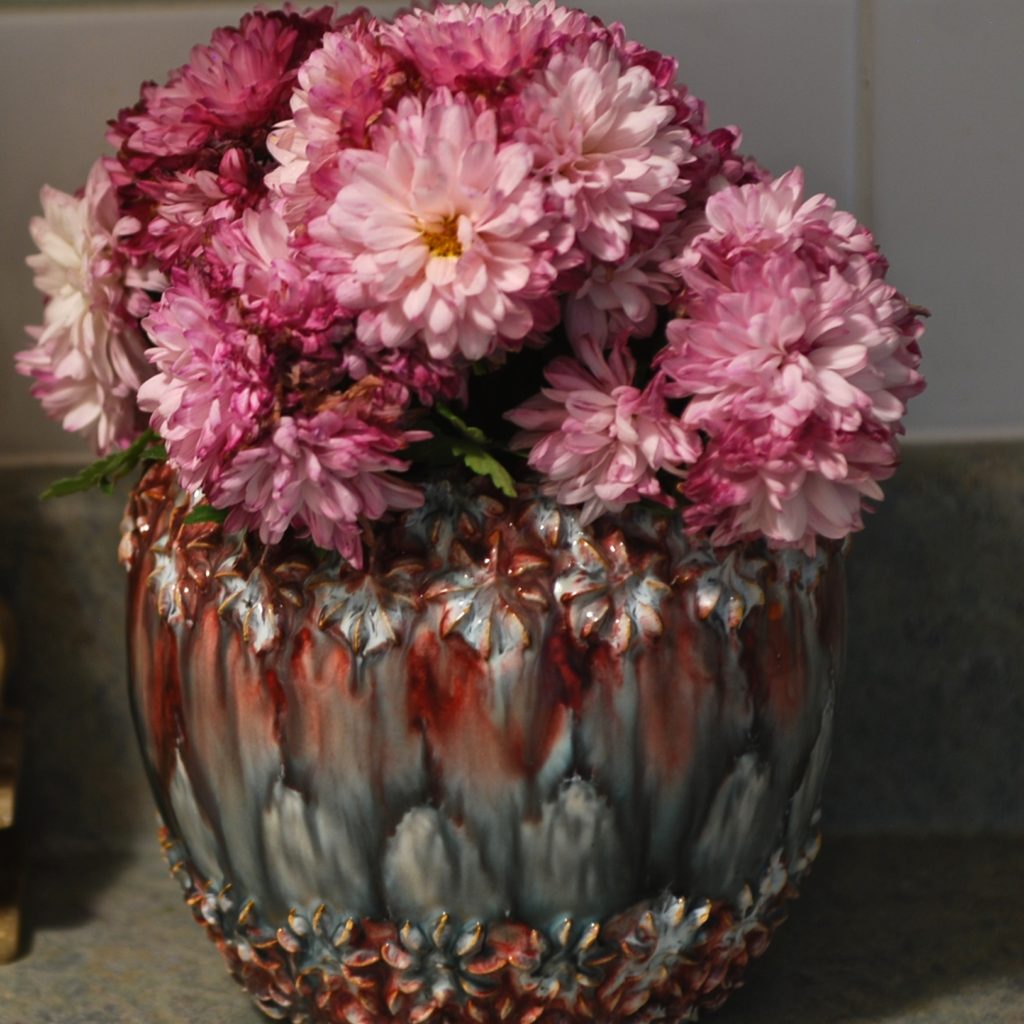What Does Optimal Mental Health Actually Mean?
Whether we acknowledge it or not, we are all immersed in this topic. We not only feel the effects of negative emotions – but we see the effects of a breakdown in mental health on society in general. Obviously mental health deterioration has an adverse effect on the person who is losing it, as well as on the family and community they dwell in. It is a vast and complex subject.
Maintaining stability in mental health involves managing emotions first and foremost. Of the wide range of mental health illnesses, anxiety and depression seem to top the list. Most people who suffer from anxiety and depression manage to lead outwardly normal lives.
It is fairly common to struggle with thoughts of what has happened, and what could happen – and then feel dominated by negative or fear-provoking thoughts. We need to ask ourselves what is happening from a realistic perspective. A depressed or anxious person can remain quite stable, as long as they do not turn to drugs and alcohol to self-medicate. Self-medicating for short term relief or mood elevation, exacerbates the problems. Excessive and ever increasing amounts of self-medication can disinhibit any individual, leading to a downward spiral of an otherwise stable person.
Most violent and antisocial behaviour stems from a failure to cope with life’s circumstances. The number one key responsibility to remain sane, is to manage anger and fear without lashing out. It does not mean the emotions, betrayals, annoying behaviours, wrongdoing should be buried. If it is buried, things do not get resolved and fester away often erupting in violence.
The key is to remain rational and share your opinions using words. If the negativity is being inflicted on you by another person or entity – sharing the opinion helps to find someone to either validate or refute it. In any case, using non-violent language to explain how something is affecting you, will help to get the grievance out and on the table.
The other thing to help alleviate anger, agitation or tension is through exercise and sports. Most people who are healthy with high levels of energy have long since realized they are much saner and more able to cope if they go for a walk, run, swim, or bike ride. One of the healthier mental health habits is to create some kind of outlet that works best for you as an individual, and make sure it is something you can fit in and do on a regular basis, especially when faced with negative moods, reactions, and conflicts.
In some cases, people find their escape route through music, painting, tinkering on cars, washing the car, organizing the kitchen or the garage, etc. In fact, organizing things can be quite therapeutic since it gives us a sense of control over our environments.
None of us can maintain a completely optimal state of mental health 100% of the time. So we have to think it through, and make decisions on how to handle the intense emotions. Screaming, cursing, throwing things, verbal abuse, etc. is a sign of mental health deterioration. If done frequently or consistently, it is a sign the person is going to need intervention.
Part of navigating undue strain upon our mental health is the importance of setting boundaries. All healthy relationships, families, organizations, and communities need to set boundaries. There are certain things we can tolerate, and certain things that are deal breakers.
Fortunately most people can discuss, understand and respect boundaries. But there are difficult people who will not respect boundaries, or who will try to control the life of another adult without even consulting with them. Each of us only has our own life to live, and we get to decide what we believe and who we serve.
No one can take away the intrinsic purpose of another person’s life. They do try – so boundaries are critical. No means no. It is a hard thing to get across to some people. People who will not take no for an answer are viewing you as an object. We don’t have to be treated as objects. We were not put on this earth to benefit someone else, who thinks they can scam and take ownership of our lives and our potential. Get lost – is what you firmly have to tell them, and the sooner the better.
It took me more than thirty-five years to get a high school teacher out of my life. A teacher I did not want to have any kind of relationship with in the first place. Yet it was almost impossible to get rid of the guy. My biggest regret in life, is that I did not set a louder boundary and scream blue murder when he targeted me as a student in school. Someone should have put a stop to his obsessive and delusional claims over my life. He would not listen to me. What an incredible abuse of power he exhibited.
I am certainly not being preachy when I write tips on maintaining mental health, because it was only by the grace of God, I managed to survive the delusional teacher’s lifelong soul-stalking and lies.
There are soothing and meditative sleep channels that help a great deal. A nutritious diet is essential to provide all the regulatory and stabilizing mood chemicals from the gut bacteria, blood glucose, etc. Our moods are influenced by our environment, relationships, sleep patterns, diet and exercise. Never underestimate the value of a peaceful and restful sleep. Rest is central to mood, healing, restoration, and immune function.
Another aspect of maintaining optimal mental health is to work at something every single day. Idleness is unhealthy. It numbs out both body and mind, leading to a lack of productivity and hopelessness. Everyone who is capable, needs to work on something. No matter how old we are, the more we do, the more it keeps our cognitive function going. Making a point of memorizing passwords, sixteen digit bank and credit card numbers, etc. will help the memory. Staying motivated to work on something helps us to look forward to each day.
Games like bridge, chess and scrabble are good for memory and brain exercise. My all time favourite is Words With Friends, which is online scrabble, with a few different rules than regular scrabble.
Taking a break from negative news media helps. I spoke with one elderly lady recently in the grocery store, asking her how she is coping with all the covid news. She said she has stopped watching the news and puts on comedies or nature shows instead.
Her sensible reply demonstrates how adaptable we are. We can unplug from the media for a period of time, if things get too depressing. For many people, growing things, nurturing others, or caring for pets is quite therapeutic.
One bonus to being home so much is that I have learned about the varieties of chrysanthemums, and at the time of writing, still have multiple blooms when it is almost Christmas! There are so many different colours and types. Some look like zinnias, others like bright yellow daisies, and some like small bushes. Others will cascade downward like a waterfall.
In fact after reading up on them, I have learned they are the flower chosen as the Imperial Emblem of Japan. The New York botanical gardens and many yearly displays in Japan showcase these colourful blooms. They have certain varieties growing with up to a thousand blooms on a single stem. Who would have dreamt it? They also seem to like coffee, so we do have common grounds.
Chrysanthemums supposedly only bloom once a year. But I have learned from experience, they do bloom more than once. I bought some in the spring and once they stopped blooming, stuck them in bigger pots, just in case. They grew much larger, and all four plants bloomed again for months.
They will grow stems long enough to go around other plants, to get their faces and flowers into the sunshine. They are totally different than the common bushy small ones you see everywhere in the fall. They get much more creatively unruly, and are far more beautiful, once they let loose a little. The semi-lockdowns brought me a huge appreciation for these gorgeous flowers with so many varieties. It also reinforces the many advantages of living in a fairly mild, west coast type climate.
The milder climate means we have been able to get outside, without all the snow and ice. I think a big part of staying sane and well-balanced, is to have gratitude for what we do have, and what we can do.
People who end up in LTC facilities, often end up there for one of two reasons. One is a physical disability, which is severe enough to take away their mobility, and therefore they cannot get around or function without help. The other, and equally important contributor, is a loss of cognitive function. In some cases, the person has no control over these things. Like cancer and other diseases, some of the chronic conditions are simply bad luck.
But to improve our chances, we have to learn to control our emotions and exercise our minds as well as our bodies. We have to adapt to losses or disappointments in life without losing our mind, or being in a constant state of stress.
Many times I ask myself when I feel worried about something, whether or not it is something to be dealt with, and what needs to be done about it. If the answer is nothing – then accept it as a transient annoyance or trigger you are not obligated to react to.
Sometimes when there is conflict, you have to measure out a response, and put the ball in their court. Then simply wait for a reply. So in this regard, being able to compartmentalize certain facets of life, can help us to set negative things aside, once we have done what we can to alleviate them.
The biggest word of caution, is regarding the roller coaster ride created by drugs and alcohol. Never assume a prescription drug will not have side effects or consequences to your health. Anti-anxiety and antidepressant drugs may give short term relief, but getting off them and restoring dopamine and serotonin levels is another matter all together. These drugs are potent neuroleptics affecting the brain and entire central nervous system.
There is no point in being in a chronic state of not being able to see the forest for the trees. Look at the mountains, the sky, the ocean, and the rivers when you get outside. Nature is every bit as beautiful as it was before all the covid fears began. Some things in life change. Other things are constant. Some of what we face each day is completely out of our control.
Figuring out and accepting what we can and cannot control – while leaving the rest to faith – in a nutshell, will also assure us of a sound mind. Good thing too. We need our cognitive function now more than ever before.


Copyright Valerie J. Hayes and Quiet West (2020). Unauthorised use and/or duplication of this material without express and written permission from this blog’s author/owner is strictly prohibited. Excerpts and links may be used, provided that full and clear credit is given to Valerie J. Hayes and Quiet West with appropriate and specific direction to the original content.
